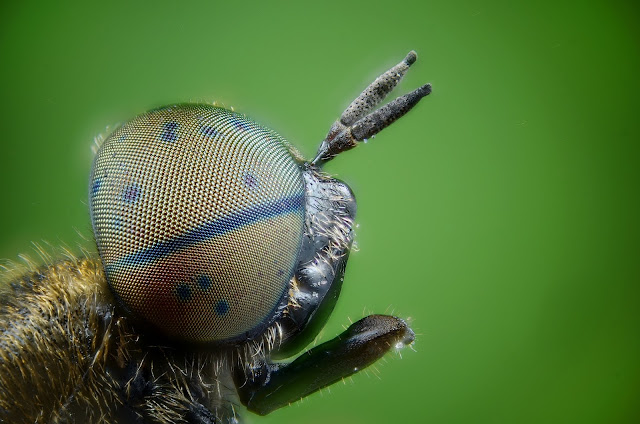PROteINSECT project’s key publication recommends review of insect protein legislation & funding to help address European protein deficit
Since 2013, experts from Europe, China and Africa have been investigating the use of two species of fly larvae in the diets of chicken, pigs and fish, carrying out feeding trials and analysing quality and safety of rearing farmed flies on organic waste substrates such as manure.
Their research findings are summarised in the White Paper published today (Wednesday 27 April) along with recommended next steps to help European policy makers, legislators, industry and consumers grasp ‘the insect opportunity’.
The document, titled Insect Protein – Feed for the Future: Addressing the need for feeds of the future today, encompasses safety, nutritional value, environmental impact, commercialisation and consumer acceptance of insect protein in animal feed. It endorses two key actions:
- PROteINSECT fish feeding trials demonstrated insect meal can replace up to 50 percent of feed without affecting animal performance
- PROteINSECT pig feeding trials revealed improved gut health in piglets
- PROteINSECT poultry feeding trials showed that chickens fed on insect-containing diets performed as well as those fed on commercial diets
Since 2013, experts from Europe, China and Africa have been investigating the use of two species of fly larvae in the diets of chicken, pigs and fish, carrying out feeding trials and analysing quality and safety of rearing farmed flies on organic waste substrates such as manure.
Their research findings are summarised in the White Paper published today (Wednesday 27 April) along with recommended next steps to help European policy makers, legislators, industry and consumers grasp ‘the insect opportunity’.
 |
| Image: Gilles San Martin |
- A review of Regulation EC 999/2001 and Regulation EC 1069/2009, which prohibit a) the use of insects as a source of protein for animal feed for animals raised for human consumption; and b) the rearing of insects on manure or catering waste, respectively.
- A commitment to undertake the necessary research to ensure that the required evidence is available for the European Food Safety Authority (EFSA) to carry out a full risk profile for insects reared on organic wastes (building on EFSA’s ‘Risk profile related to production and consumption of insects as food and feed’ published in October 2015)
Dr Elaine Fitches, PROteINSECT project co-ordinator, says, “We are delighted to share our White Paper as a key stepping stone towards furthering our understanding of the potential for the use of insects in animal feed in Europe.”
Copies of the White Paper have already been distributed to key members of the European Parliament and it will be formally presented at PROteINSECT’s final conference taking place in Brussels today.
PROteINSECT’s White Paper is designed to safeguard the impact and legacy of its research, ensuring that the potential of insects to make a valuable contribution to existing and future animal feed demand in Europe is fully realised.
“The protein gap in Europe is a very real risk to social, economic and environmental progress,” says Dr Fitches.
“As we seek sustainable European long term solutions we must consider the benefits that the introduction of insects - specifically fly larvae - could have on the content of animal feed. PROteINSECT believes these highly effective protein converters offer great potential for Europe to become global contributors to the provision of alternative and additional innovative protein sources.”
Visit the PROteINSECT site HERE.
Download the White Paper HERE.
Copies of the White Paper have already been distributed to key members of the European Parliament and it will be formally presented at PROteINSECT’s final conference taking place in Brussels today.
PROteINSECT’s White Paper is designed to safeguard the impact and legacy of its research, ensuring that the potential of insects to make a valuable contribution to existing and future animal feed demand in Europe is fully realised.
“The protein gap in Europe is a very real risk to social, economic and environmental progress,” says Dr Fitches.
“As we seek sustainable European long term solutions we must consider the benefits that the introduction of insects - specifically fly larvae - could have on the content of animal feed. PROteINSECT believes these highly effective protein converters offer great potential for Europe to become global contributors to the provision of alternative and additional innovative protein sources.”
Visit the PROteINSECT site HERE.
Download the White Paper HERE.
The Aquaculturists
This blog is maintained by The Aquaculturists staff and is supported by the
magazine International Aquafeed which is published by Perendale Publishers Ltd
For additional daily news from aquaculture around the world: aquaculture-news

No comments:
Post a Comment